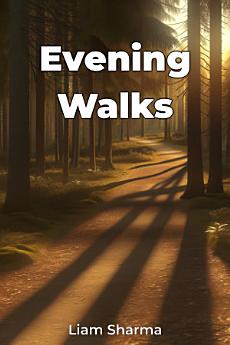Evening Walks
Über dieses E-Book
Central themes include how gentle movement aids digestion (reducing bloating by 28% in desk workers), aligns with circadian rhythms to boost deep sleep by 12%, and creates a mindful transition from day to night. Unlike high-intensity workouts, evening walks work with the body’s natural energy decline, offering a sustainable fix for those juggling busy schedules.
The book’s strength lies in its interdisciplinary approach, connecting dots between gastroenterology, sleep science, and neuroscience. Historical contrasts—like ancestral step counts versus modern inactivity—ground its advice in humanity’s innate need for movement.
Structured across eight chapters, it progresses from anthropological context to practical strategies, such as urban route planning and sensory-focused mindfulness. Unique insights include how rhythmic walking stimulates creativity and why timing matters more than step counts.
With relatable anecdotes and adaptable frameworks (like seven-minute starter walks), it caters to professionals, stress-prone individuals, and older adults seeking joint-friendly exercise. By reframing an ancient habit through contemporary research, Evening Walks turns a daily stroll into a science-backed tool for lasting wellness.







